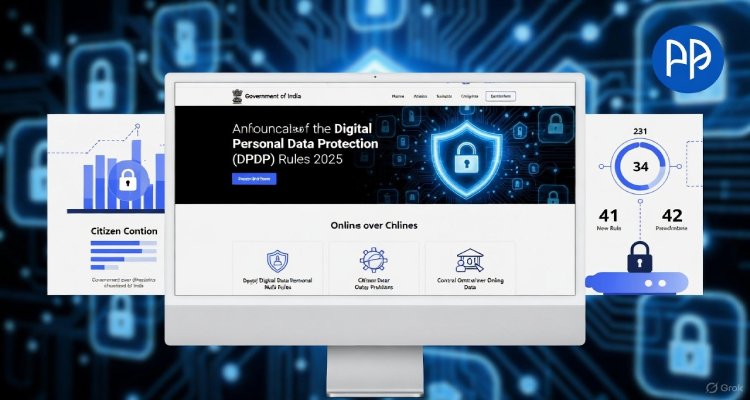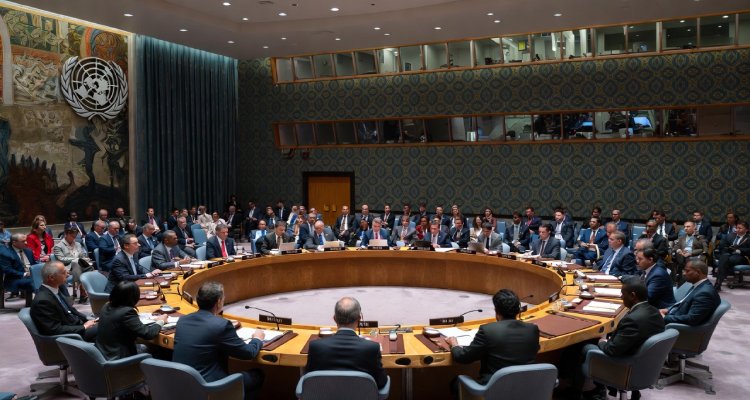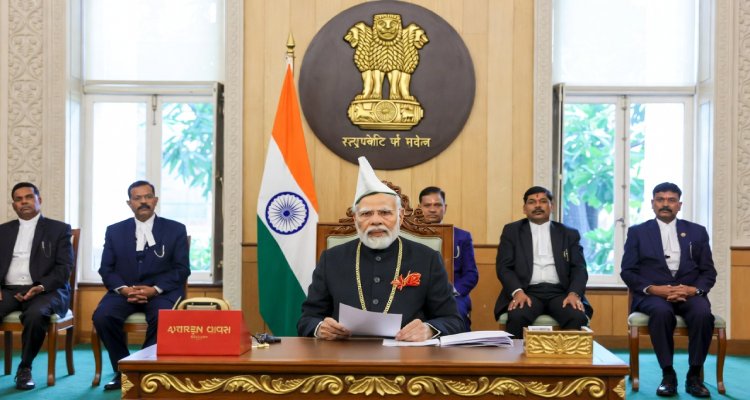India Notifies DPDP Rules 2025: A New Dawn for Digital Privacy Rights

India notifies the Digital Personal Data Protection (DPDP) Rules, 2025, marking full operationalization of the DPDP Act, 2023 and setting the stage for stronger digital privacy rights.
Introduction: A New Era for Digital Privacy in India
In a landmark step toward citizen data empowerment, the Government of India has officially notified the Digital Personal Data Protection (DPDP) Rules, 2025 on November 14. This notification marks the complete operationalisation of the Digital Personal Data Protection Act, 2023 (DPDP Act)—ushering in a structured and citizen-first framework that protects how personal data is collected, processed, and used in the digital age.
The Rules not only aim to protect individual privacy but also to hold organisations accountable for mishandling data. With India ranking among the world’s largest digital societies, this milestone represents a turning point in establishing trust between citizens and the online ecosystem.
Context and Background: From Bill to Framework
The DPDP Act, 2023 was passed by Parliament in August 2023 and received Presidential assent shortly after. Designed as India’s first comprehensive law dedicated solely to digital data protection, it builds on global privacy standards like the EU’s General Data Protection Regulation (GDPR), but is tailored to India’s socio-economic and technological landscape.
At its core, the law aims to ensure responsible data processing while protecting the constitutional right to privacy affirmed by the Supreme Court in the landmark Puttaswamy judgment (2017). The DPDP Act and Rules together lay down clear boundaries for businesses, government agencies, and digital platforms handling personal information.
Main Developments: What the DPDP Rules Establish
The newly notified Rules crystallize how the principles of the DPDP Act will be implemented in practice. They specify timelines, compliance procedures, and citizen-focused mechanisms to ensure transparency and accountability.
Among their various provisions, the Rules emphasize:
-
Ease of consent management: Individuals can give, manage, and withdraw consent through licensed Consent Managers operating within India.
-
Transparency obligations: Organisations must inform users clearly about the purpose of data collection and use.
-
Timely response: Data fiduciaries (organisations handling data) must respond within 90 days to any citizen request related to access, correction, or erasure of data.
-
Special protections for children: Parental consent is mandatory for processing a child’s personal data unless it pertains to essential services.
-
Data breach notifications: In case of a breach, both the citizen and the Data Protection Board of India (DPB) must be informed without delay.
The DPDP Rules also allow an 18-month phased implementation, giving organisations sufficient time to upgrade internal systems and align with new compliance norms.
The Framework: Roles and Responsibilities Explained
The Act introduces specific entities and their responsibilities:
-
Data Principal: The individual whose data is being processed—essentially, every Indian citizen online.
-
Data Fiduciary: The organisation that determines why and how personal data is processed.
-
Data Processor: An entity processing data on behalf of a fiduciary.
-
Consent Manager: A neutral platform that helps users manage permissions and withdrawals in an interoperable manner.
-
Appellate Tribunal (TDSAT): The body that will handle appeals against decisions of the Data Protection Board.
The Data Protection Board of India functions as the enforcement authority, tasked with ensuring compliance, investigating breaches, and imposing penalties.
Expert Insights: Balancing Innovation and Individual Rights
Data protection experts see the DPDP Rules as a timely and necessary intervention in India’s digital ecosystem. “The new framework is a positive balance between innovation and privacy,” said a cybersecurity analyst with the Centre for Digital Policy. “For citizens, it ensures informed consent and better control. For companies, it provides operational clarity and reduces ambiguity.”
Industry observers note that large technology firms and startups will need to make structural shifts in their digital operations—from how they store user data to how they secure consent. On the public side, the Rules could substantially reduce spam communications and unauthorized surveillance activities.
Civil society groups, meanwhile, are urging continuous oversight to ensure the Rules are implemented effectively without bureaucratic delays or misuse.
Impact and Implications: Data Rights Come Alive
The DPDP framework is built on seven guiding principles—consent, transparency, purpose limitation, data minimisation, accuracy, storage limitation, security safeguards, and accountability. Together, these provide a comprehensive map for ethical data ecosystems.
For citizens, the practical impact is significant:
-
Right to know what data is collected and why.
-
Right to access or delete personal data when necessary.
-
Right to correct inaccuracies in information held by organisations.
-
Protection against data leaks, spam calls, and unauthorized access to voice or video data.
For data fiduciaries, the Act brings a strict penalty regime—up to Rs 250 crore for failure to maintain reasonable security safeguards and Rs 200 crore for not reporting breaches or violating children’s data obligations. Additional non-compliance may attract fines of up to Rs 50 crore.
These provisions set strong deterrents against negligence while encouraging the growth of privacy-by-design models.
Looking Ahead: Building a Privacy-Conscious Digital India
Although the DPDP Rules will become fully operational 18 months from now, their notification signals a shift in digital governance, where privacy is treated as a fundamental right and responsibility. The next phase will test how effectively organisations—both public and private—adapt to these regulations while maintaining service efficiency.
India’s journey toward comprehensive data privacy may still be evolving, but with the DPDP Act now operational, the country joins a growing list of global democracies championing user control in the digital age.
Disclaimer: This article is for informational and educational purposes only. It does not constitute legal or professional advice regarding compliance with the DPDP Act or Rules.









